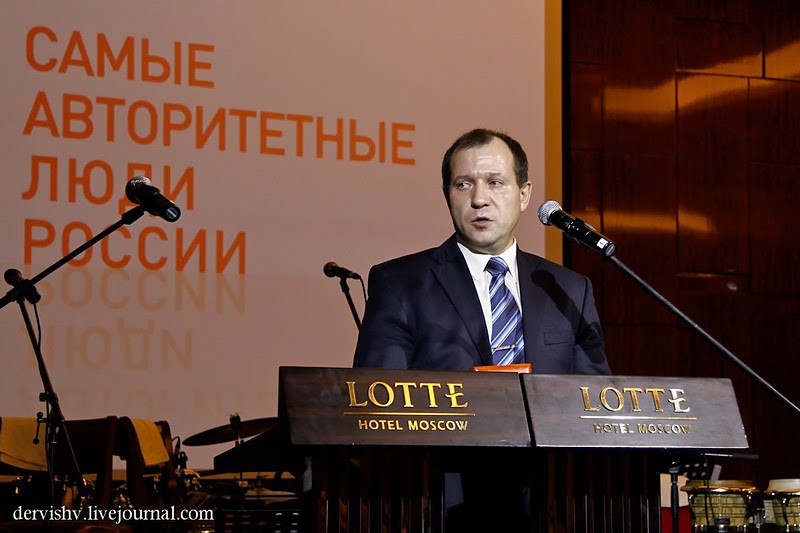Yesterday we learnt about another attempt to instigate criminal proceedings against CAT Chairman Igor Kalyapin in connection with disclosure of secrets of the investigation. The information comes from Igor Kalyapin himself who is now in Grozny working in the Joint Mobile Group of Russian human rights NGOs. He has called the CAT press-service saying that on Saturday, July 7, he was questioned by an investigator of the Special Investigation Department under the Main Investigative Administration of the Russian Investigative Committee for the Southern federal territory. The criminal proceedings were initiated by the Federal Security Service Directorate of Nizhny Novgorod region; earlier there had been two attempts to instigate criminal proceedings against the human rights defender undertaken by Chechen law enforcement agencies allegedly responsible for grave crimes and their concealment.

This time the pre-trial check was triggered by a report of operative investigator R.S.Ryabkov from the Nizhny Novgorod Regional Federal Security Service Directorate who had found evidence of a crime under Article 310 of the Russian Criminal Code in a number of mass media publications. Those were Elena Milashina’s articles published in Novaya Gazeta (“Kadyrov’s timid guests”, “The confrontation fails”, “Vertical impotence”, “Chechnya is worth defending”); article “Caucasian hounds” published by Svetlana Reiter in Esquire awarded the 2011 Best Publication Prize of Independent Media publishing house; as well as Igor Kalyapin’s “Chechen diaries” published first in a blog and then on the CAT web-site. These publications cover crimes committed by the Chechen police – tortures, enforced disappearances, as well as systematic sabotage of investigations into such crimes by investigative authorities. Igor Kalyapin is representing one of the victims, Islam Umarpashayev, who in 2009 was abducted, tortured and unlawfully deprived of liberty for 4 months confined at a Chechen Special Police Task Force base. Kalyapin took part in several investigative activities in that capacity. In May 2011 investigator Igor Sobol made Kalyapin sign a non-disclosure statement with regard to preliminary investigation materials.
Kalyapin himself maintains that he was not disclosing any criminal investigation materials, but only drawing attention of mass media and the public to the flagrant reluctance of investigative authorities to deal with crimes committed by Kadyrov’s supporters. He is convinced that attempts to hold him criminally responsible are a form of intimidation aimed at preventing further CAT’s activities with regard to offenses allegedly perpetrated by actual subordinates and close associates of the omnipotent Chechen dictator. “I have not shared information about investigative steps with anyone, – Kalyapin’s interrogation record at the disposal of the CAT press-service reads. – At the same time, I have many times provided information about circumstances hindering certain investigative steps and obstacles on the way of the investigation, in general, for wide coverage. While doing so, I did not disclose either results or essence of investigative activities.” Investigator Igor Sobol in charge of the investigation into Umarpashayev’s abduction neither believes that Kalyapin has disclosed any investigation materials.
By way of bitter irony, the report of Nizhny Novgorod “chekists” is being checked by the Special Department of the Investigative Administration for Investigation of Crimes Committed by Law Enforcement Agents. This is the investigative authority which concept was developed by a group of human rights defenders, including Igor Kalyapin, and approved by Russian Investigative Committee Head Alexander Bastrykin last winter.
The Committee Against Torture regards this incident as part of a systematic intimidation campaign inspired by high-ranking suspects and would like to point out that rights of CAT lawyers working in Chechnya have been repeatedly violated. For instance, on January 21, 2012 Anton Ryzhov was detained by the police when leaving the train in Nizhny Novgorod, on his way back from Chechnya where he had participated in the Joint Mobile Group. Ryzhov was escorted to a transport police department in Nizhny Novgorod where he had his notebook and digital memory devices seized. In February 2012 the whole Joint Mobile group was unlawfully detained by agents of the Shaly District Department of Internal Affairs. Ramzan Kadyrov has personally several times threatened the JMG and CAT. “These guys hate Chechens. They have come here to earn money”, the Chechen dictator said on June 1, 2012. He also promised that he would soon know everything about CAT’s work.
“It is now obvious that those words were not a mere declamation. Apparently, Ramzan has already been informed that Nizhny Novgorod “chekists”, just like Nizhny Novgorod police agents, are looking forward to dancing to the tune of Kadyrov’s thugs”, was the comment of Kalyapin’s colleague, Nizhny Novgorod human rights defender Stanislav Dmitriyevsky in connection with the Chechen head’s statement.
The Joint Mobile Group of Russian human rights organizations (JMG) began working in Chechnya in November 2009 following abduction and murder of Memorial Human Rights Centre activist Natalia Estemirova. The JMG consists of three people working on a rotation basis (shifts) for one month. Every shift has a leader equipped with a power-of-attorney to represent victims’ interests in the context of criminal proceedings. Thus, JMG members can participate in investigative steps, file petitions and otherwise control the official investigation progress. JMG’s activities are organized and coordinated by the Interregional Committee Against Torture.